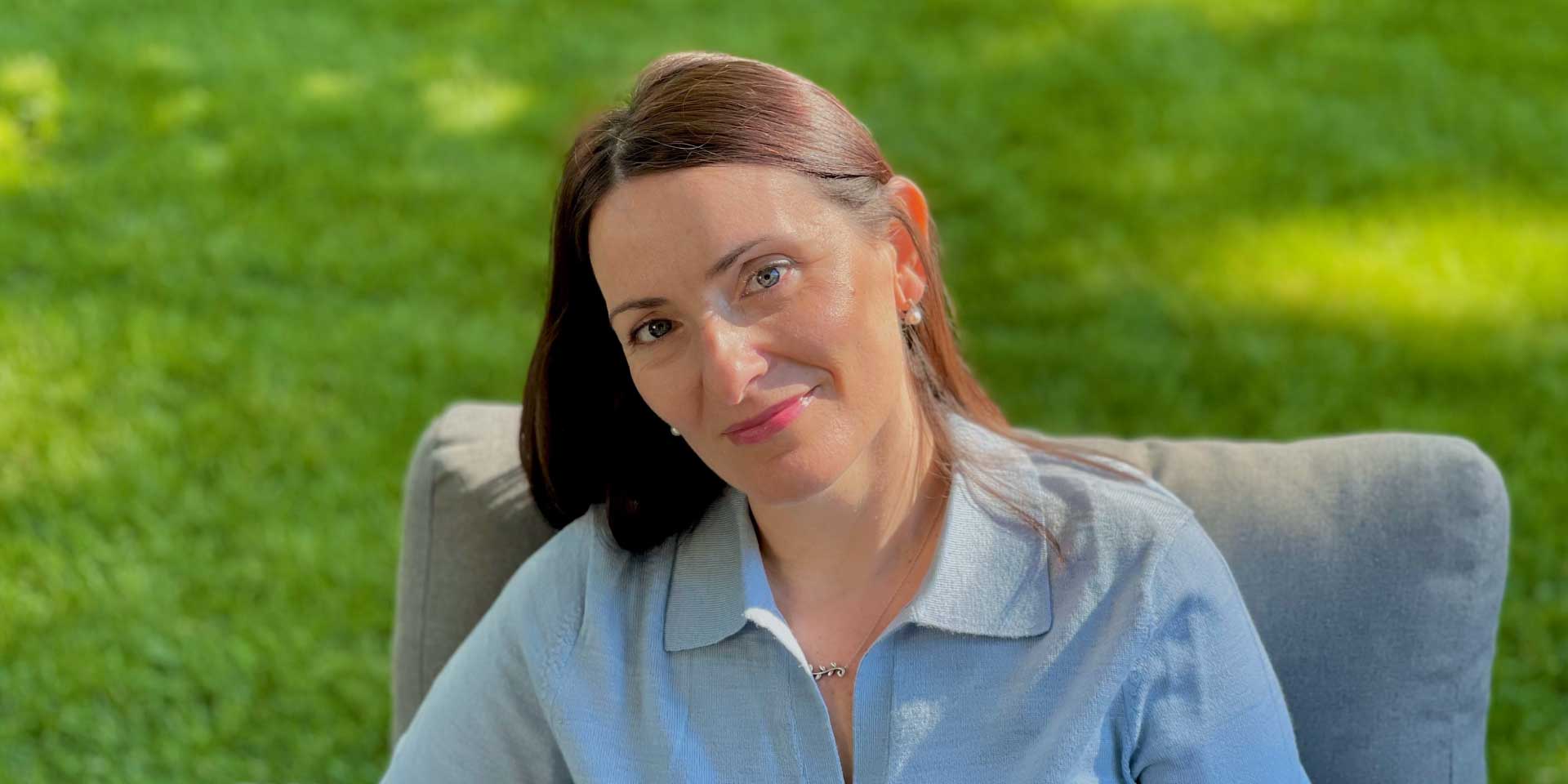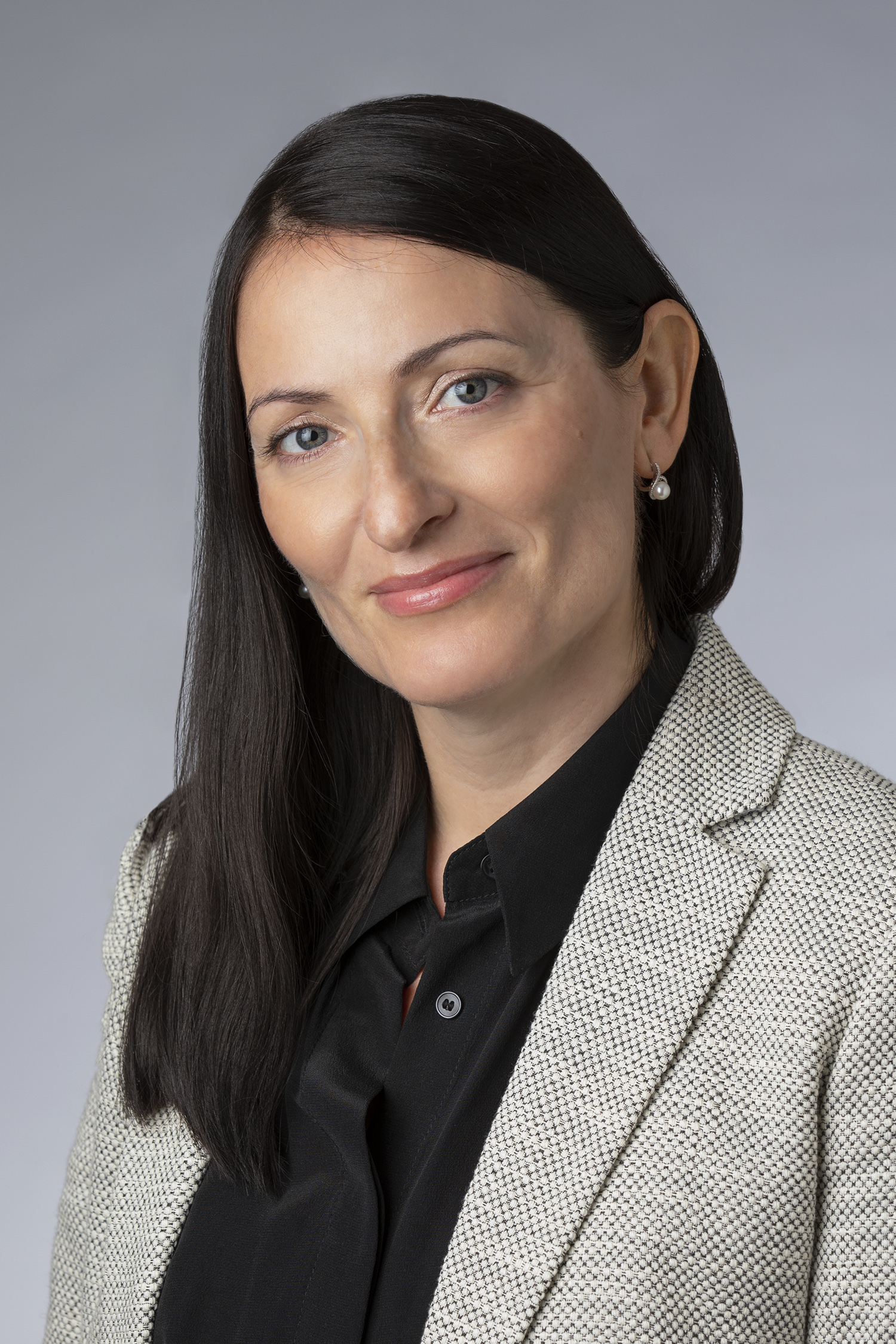A Moment with Madalina Sucala is part of our interview series featuring thought leaders in research and healthcare. Each interview includes 7 short and stimulating questions.
Madalina Sucala, PhD, MBA is a behavioral scientist and digital health strategist with over 10 years of experience in digital health, merging scientific rigor with a keen focus on patient needs to improve health outcomes and overall treatment experience. She brings a combination of academic and industry-acquired expertise in developing, implementing, and evaluating digital health solutions for wider reach and impact. Dr. Sucala currently works as a Director of Digital Health Science, Oncology R&D, AstraZeneca, focusing on unmet evidence generation needs and leveraging technology solutions that enable patient-centric clinical trials.

1. Tell us something we don’t know. (Anything!)
I lost my grandfather a couple of months ago. I wish he would have had the chance to meet and spend time with my newborn daughter who was just a few months old when he passed away. They would have liked each other – both having such happy and bubbly personalities. He did not even get to see her. I sent him a printed picture, by traditional mail, but it did not arrive in time. If there was ever a use case for some kind of digital photo-sharing tool, that would have been us – two people living on different continents wanting to share the joys of a life beginning and the ability to hold on to the memories of the one ending. But my grandfather never got comfortable enough with smartphones or any such devices so that was not an option.
I think about that a lot in my line of work – how one of the most frequently discussed use cases for digital health is expanding access for those who have a hard time receiving the care they need (e.g., due to age, mobility, region, and so on). Yet somehow so many digital solutions are missing the mark on this use case because they inadvertently exclude, through design or implementation, the very people they wish to help.
2. Which fiction book would you recommend to researchers and innovators in healthcare, and why?
The first one that comes to mind is Brave New World. The book is about a scientifically managed dystopian society, where advancements in biotechnology and behavior science are used in the service of society and end up having frightening consequences to individual liberty and sense of free will. Besides being a great read, it’s a timeless reminder that considering the ethical implications of one’s work should never be an afterthought, and actively thinking about the intended and unintended consequences, as well as about those who might inadvertently suffer due to it, should be an inherent part of our work.
3. What are you working on right now that you’re excited about?
I am very excited about my team’s work on ensuring that patients’ voices are heard and that they can be actively engaged in their own care. For the most part, as adults, we enjoy a certain level of autonomy and agency in the way we lead our professional and personal lives. Once we become patients, that autonomy is no longer a given, and often times healthcare decisions are made without a good understanding of what outcomes are important for the individual being treated. Personally, I recently had the experience of being a patient when having my baby, and I was taken aback by how limited of a chance I was given to share what’s important for me during my care – and that was in the context of being a very privileged patient with great access to care and having a high health literacy. There are many patients in less privileged circumstances and we need to do our utmost to hear and lift their voices. Working as a behavior scientist in digital health, I see ample opportunities for using technology to better understand what is important to patients and to better support them and their healthcare providers throughout their health journey.
4. Who’s doing something that you admire in healthcare today, and why is it so incredible?
I admire and look up to so many people but I will shine this light on women leaders. Organizational research indicates that women leaders have more engaged teams and are driving higher performance scores, so when these findings are translated into financial impact, the call to action essentially writes itself. This is incredible because such findings stand true even when assessed during the pandemic, when women bore the brunt of childcare and family care on top of their professional roles. Reports indicate that women leaders rose to meet the moment, and compared to men at the same level, they took more action to support their teams, helped employees to manage their workloads and focus on their well-being, and spent more time mentoring and supporting employee resource groups. This is not office “housekeeping”. This is leadership and needs to be defined and rewarded as such.
5. What’s the biggest barrier to getting things done in your line of work?
Striving to achieve scale with any digital health solution or service requires a certain level of standardization and generality, yet health is individual and local. This is not so much of a barrier, rather a constant challenge to navigate while aiming for a wide reach at a population level yet having to meet the needs of the individual.
6. Imagine you win an award for impacting healthcare. What did you do?
I hope it’s for finding a new way to support an unmet patient need. I have always been fortunate to either work with or in very close proximity to patients in various segments of their healthcare journey, be that a mental or physical health one, and the opportunities for improvement are ample. There’s nothing more humbling or revealing than spending time with those whom we seek to help. Now if I can daydream about a second award, I hope it’s for being a compassionate and empathic leader in healthcare. After a couple of years in this pandemic when we didn’t get to spend time together in person but we caught Zoom glimpses of personal lives, with various struggles and losses, with kids and pets, and baking hobbies, I hope we can normalize and validate compassion as a leadership trait. Performance thrives in a supportive environment and it takes time, skill, and meaningful effort to architect such an environment.
7. What advice would you give innovators in healthcare?
To stay as close as possible to the needs of those whom they aim to help with their innovation. Technology will continue to evolve and become more and more sophisticated as a tool but something that I am constantly being reminded of in my day-to-day job is that the tool, methodology, device, etc. has to fit its purpose, or in other words – be in the service of this purpose. So to me that means that we have to start with a very crisp understanding of the need and general problem space before arriving at an innovative solution. We cannot bend the needs of the patients or their circumstances to fit our tools, so we can only develop better tools that are fit for purpose.
About Madalina Sucala

Madalina Sucala is a behavioral scientist and digital health strategist with over 10 years of experience in digital health, merging scientific rigor with a keen focus on patient needs to improve health outcomes and overall treatment experience. She brings a combination of academic and industry-acquired expertise in developing, implementing, and evaluating digital health solutions for wider reach and impact.
Dr. Sucala currently works as a Director of Digital Health Science, Oncology R&D, AstraZeneca, focusing on unmet evidence generation needs and leveraging technology solutions that enable patient-centric clinical trials. Previously, she worked as a Senior Manager of Behavior Science at Johnson & Johnson, where she provided scientific and strategic guidance for digital health solutions across several therapeutic areas (e.g., chronic disease management) and markets (e.g., US, APAC, EMEA).
Dr. Sucala has a PhD in Clinical Psychology and completed her postdoctoral training in Behavioral Medicine – Cancer Prevention and Control, at Icahn School of Medicine at Mount Sinai. She also has an MBA from Cornell University and an MS in Healthcare Policy and Research from Weill Cornell Graduate School of Medical Sciences.